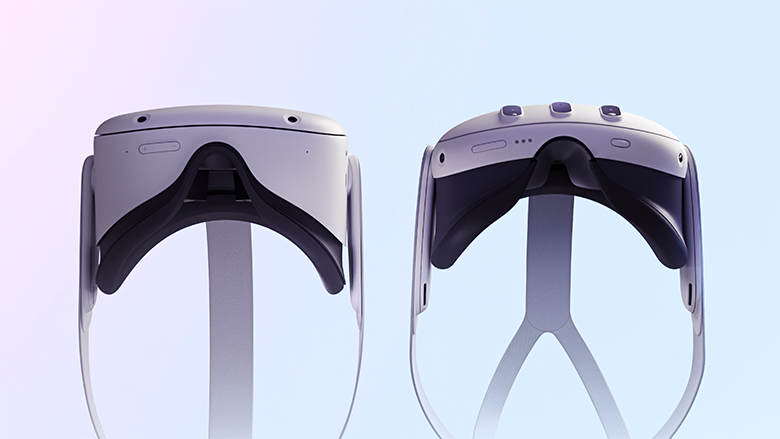Meta CEO Mark Zuckerberg is sticking to his goggled metaverse vision with the announcement of a $499 new model of the Quest virtual reality headset.
The Quest 3 is an iteration of past Meta headsets: lighter, more powerful, and with a better strap for holding it to your head. It also has three prominent sensors on the front – two color cameras and a depth detector – that promise to greatly improve the device’s augmented reality (AR) functions.

The announcement of the Quest 3 was timed to steal the thunder of Apple’s expected announcement of some kind of AR/VR headset the next day.
As is usual for Apple products, nothing concrete is known about the highly anticipated device, or whether in fact it will be announced. The industry and public expectation is that Apple – which has put billions into developing TVs and cars that have never been released – would only launch a highly polished and useful product.
Enjoy our reporting? Sign up for the Pharos newsletter and receive an update every week for free.
Contrary to the Quest 2, the Quest 3 is being touted by Meta as primarily an AR device. In a blog post, the company said that the cameras and depth detector would allow users to actually move and avoid real objects.
“These new experiences go beyond today’s mixed reality by intelligently understanding and responding to objects in your physical space and allowing you to navigate that space in natural, intuitive ways that were nearly impossible before.”
The Quest 3 comes with re-designed hand controllers and has a “40 percent slimmer optical profile”, according to Meta. The device will be released later this year, and Quest 2 will remain on sale at a discounted price. A raft of new Quest games was also announced.
Industry observers are ambivalent about the long-term prospects of “head-mounted displays” (HMDs). Shrapnel CEO Mark Long, in an interview with Polemos, said VR was the way of the future but that HMDs were “too socially isolating” to work.
“It’s cool, but it’s just not that cool … and people who are obsessed with it, like Mark Zuckerberg, are just chasing something that’s never going to happen. Ask anyone who owns a Quest when was the last time they used it. Like, a year ago,” Long said.
“You don’t have to wear a HMD to do VR.”















